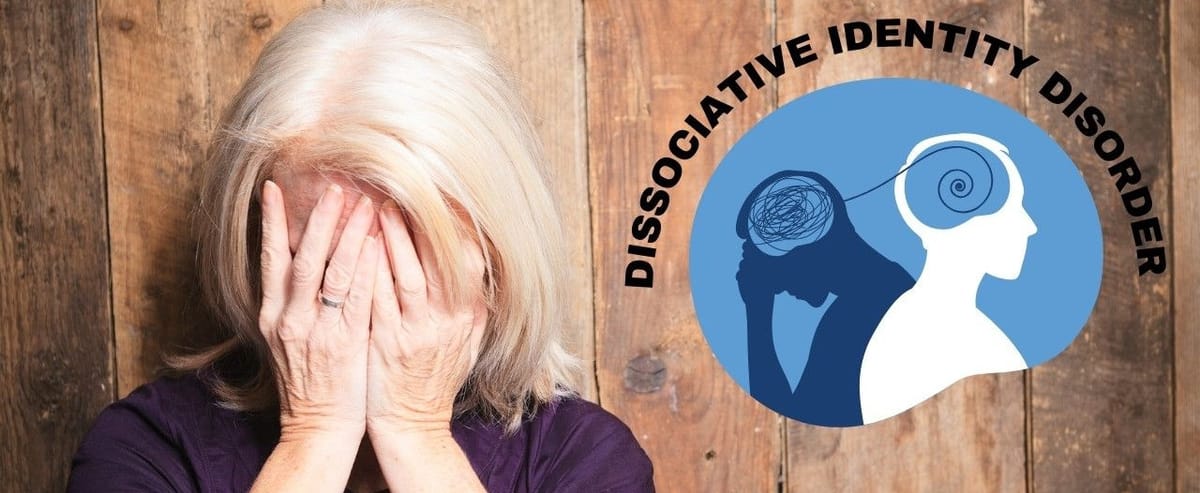How Does Dissociative Identity Disorder Affect Daily Life?
People with Dissociative Identity Disorder (DID) might have some other feelings and problems too. It's like having different people inside one person's mind. People with DID may switch between different identities.

Dissociative Identity Disorder (DID), previously known as Multiple Personality Disorder, is a complex psychological condition. It involves the presence of two or more distinct identity states or personalities within a single individual.
These distinct identities can control the person's behavior at different times and can have unique names, ages, histories, and characteristics. Understanding how DID affects daily life can provide insight into the challenges faced by those living with this condition and the importance of support and treatment.
Understanding DID
Before diving into how DID affects daily life, it’s essential to understand what it is. DID often develops as a response to severe trauma, usually during childhood. The mind creates different identities to cope with the overwhelming stress or abuse. These identities can vary in age, gender, and behavior, and each one may have its own memories and mannerisms.
Some of the key area that are affected by DID are:
Memory Gaps and Blackouts
One of the most noticeable ways DID affects daily life is through memory gaps and blackouts. Individuals with DID may find themselves in places without knowing how they got there or may lose chunks of time during which another identity was in control. This can lead to confusion, missed appointments, and difficulty maintaining a consistent daily routine.
Identity Shifts
The shifts between identities, also known as “switching,” can be sudden and unpredictable. These shifts can be triggered by stress, certain situations, or memories. When a switch occurs, the person may exhibit different behavior, voice, posture, and preferences.
For example, someone may suddenly start speaking in a different accent or displaying a new skill that another identity possesses. This can be disorienting and can affect relationships, work, and social interactions.
Emotional and Behavioral Challenges
DID often comes with emotional and behavioral challenges. Individuals may experience intense emotions, such as anxiety, depression, and anger, which can vary between identities.
Each identity may have its own emotional triggers and coping mechanisms. This emotional instability can make it difficult to manage everyday tasks and interactions.
Impact on Relationships
Maintaining relationships can be challenging for individuals with DID. Friends, family, and colleagues might find it hard to understand the sudden changes in behavior and personality. Trust and communication issues may arise, and loved ones may need to learn how to interact with different identities. Support from understanding and educated friends and family members is crucial for those with DID.
Difficulty in Holding a Job
Consistent performance at work can be difficult for those with DID. The unpredictability of identity switches and memory lapses can lead to challenges in completing tasks, adhering to schedules, and maintaining professional relationships. Employers and coworkers may need to be supportive and flexible, and reasonable accommodations might be necessary to help individuals with DID succeed in the workplace.
Physical Health
DID can also impact physical health. Some identities may have different health conditions, dietary preferences, or allergies. This can make it challenging to maintain consistent healthcare. Moreover, the stress and emotional turmoil associated with DID can lead to physical symptoms such as headaches, fatigue, and gastrointestinal issues.
Seeking Treatment and Support
Despite these challenges, individuals with DID can lead fulfilling lives with the right support and treatment. Therapy, particularly trauma-focused therapy, is crucial in helping individuals integrate their identities and cope with their trauma. Medications may also be prescribed to manage symptoms such as anxiety and depression.
Support groups and community resources can provide a sense of belonging and understanding. Educating family, friends, and coworkers about DID can foster a supportive environment. It’s important to approach those with DID with empathy and patience, acknowledging their experiences and the complexities of their condition.
Living with Dissociative Identity Disorder can be incredibly challenging, affecting every aspect of daily life. From managing memory gaps and identity shifts to maintaining relationships and employment, individuals with DID face numerous obstacles.
However, with the right treatment and support, they can navigate these challenges and lead meaningful lives. Understanding and compassion from those around them play a significant role in their journey towards healing and stability.
